In this Issue
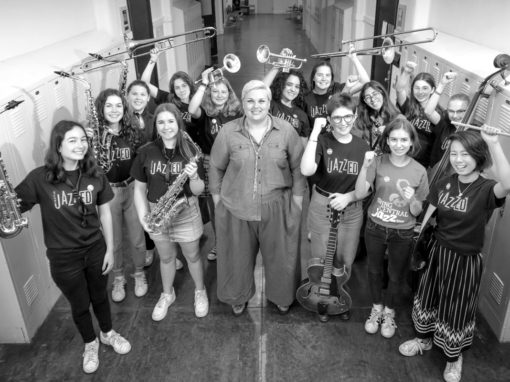




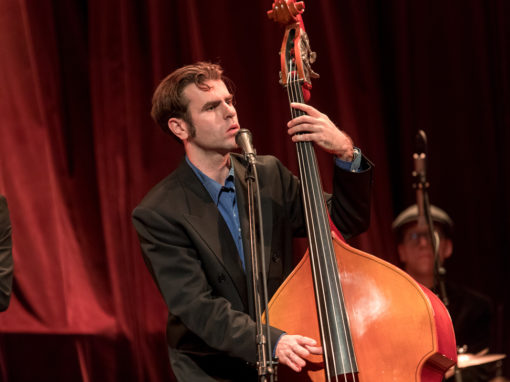



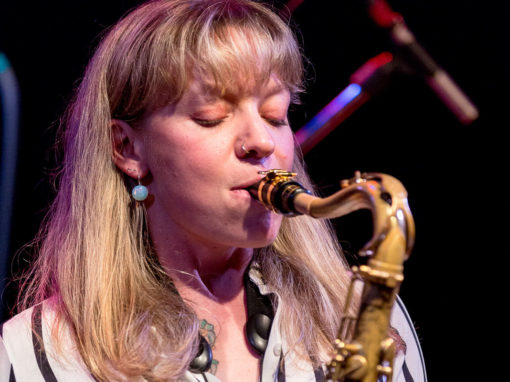
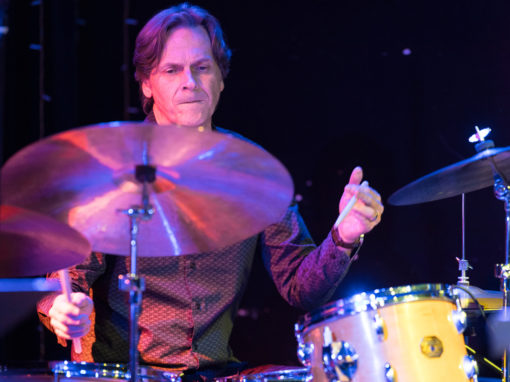

Table of Contents
-In Memoriam-
Jazz the 2nd Century Call For Artists
– Profile –
Representation Matter: The #JazzGirl Movement Goes national
-Venue Profile-
Café Nordo’s Culinarium and Knife Room
-Previews-
The 17th Annual Ballard Jazz Festival
Masthead
May 2019
Volume 35, No. 05
Executive Director
John Gilbreath
Managing Director
Karen Caropepe
Programs Manager
Tara Peters
Marketing & Development Associate
Lucienne Aggarwal
Editors
Lucienne Aggarwal
Tara Peters
Contributing Writers
Whitneyy Bashaw
Halynn Blanchard
Haley Freedlund
Rayna Mathis
Peter Monaghan
Carlos Snaider
Calendar Editors
Casey Adams
Jane Emerson
Tara Peters
Photography
Michael Craft
Layout
Tara Peters
Distribution
Karen Caropepe
Dan Dubie
Earshot Jazz volunteers
Send Calendar Information to:
Add a gig to the calendar online or send us an email.
Board of Directors
Danielle Leigh (President)
John W. Comerford (Vice President)
Jon Perrino (Secretary)
Sheila Hughes
Chris Icasiano
Maurice James
Chris Nutter
Gail Pettis
Ruby Smith Love
Diane Wah
Emeritus Board Members
Clarence Acox
Taina Honkalehto
Hideo Makihara
Kenneth W. Masters
Peter Monaghan
Lola Pedrini
Paul Toliver
Cuong Vu
Founded in 1984 by Paul de Barros, Gary Bannister, and Allen Youngblood.
Earshot Jazz is published monthly by Earshot Jazz Society of Seattle.
Subscription (with membership): $35
3429 Fremont Place #309
Seattle, WA 98103
phone / (206) 547-6763
Earshot Jazz ISSN 1077-0984
Printed by Pacific Publishing Company
© 2019 Earshot Jazz Society of Seattle
Letter from the Director
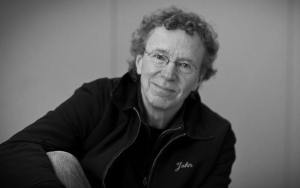
History Doesn’t Stop
I’ve often wondered about history’s memory. Clearly, a major event that impacts our solid cultural icons, like the recent fire at Notre Dame, will stop us in our tracks and remind us that we don’t often get to witness historical events in a way that allows us to draw our own conclusions. But history accumulates on all levels at all times. That’s the good news and the bad news.
In one of Walter Mosely’s recent books, entitled John Woman, the protagonist is a Black professor of “Deconstructivist History,” who calls into question just about everything we think we “know.” I hate to admit to the epiphany I had realizing, for instance, that literally all of the learned history I’ve had was compiled and “created” through a lens of privileged white culture. And, because it overtly excluded Black and Indigenous presence from our collective experience, it was, at best, a series of half-truths.
The core of jazz history (thank God) belongs to Black America without question, though it still faces challenges from racial bias. The good news about history not stopping is in the permission and possibility to change every day, to essentially recalculate our own history. Still, I’ve wondered why history remembers certain moments in jazz, and forgets others.
Since you’re reading this issue, we can assume that we each have our history with jazz. We go through life, and some things stick to us while other things slide right off. I could not tell you why I fell in love with jazz at the age of 10 or 12, but I just did, and it stuck. And over my (many) years, through the accumulation of experience and the blizzard of outside stimuli, the love remained. Now it’s clear to me that, even when life was taking me in completely different directions, I was always pointed toward this organization and work I’ve done over the past 30 years in service to the music in this great city.
It’s a joy to see the young people in this month’s cover feature, working the cultural continuum of Billy Strayhorn and Duke Ellington. History doesn’t stop. And this magazine takes very seriously its role as a document of the history of one of the most vibrant jazz scenes in the country. As always, we invite you to join us in support of Seattle jazz.
Thank you.
–John Gilbreath